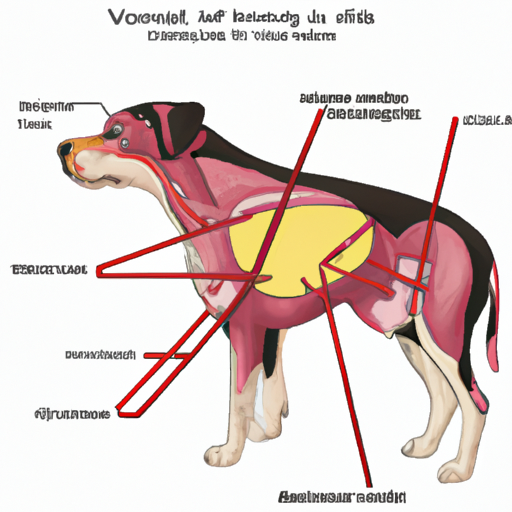Understanding Your Dog’s Anatomy
As a caregiver to your beloved pet, it’s important for you to know about their anatomy. Like humans, a dog’s heart is located in the chest cavity, slightly to the left of the center, behind the front legs. The size of the heart can vary based on the size of your dog.
Here is a simple table to help you understand the average heart size in relation to the size of your dog:
| Size of Dog | Average Heart Size |
|---|---|
| Small | Walnut-sized |
| Medium | Lemon-sized |
| Large | Orange-sized |
The Role of The Heart in Your Dog’s Health
Your dog’s heart is vital for their overall health. It pumps blood, supplying oxygen and nutrients to all parts of their body. When your dog’s heart isn’t functioning properly, it can lead to a wealth of health problems such as heart disease and fatigue. Just as you take care of your own heart, it’s important to care for your dog’s heart too.
Ways to Keep Your Dog’s Heart Healthy
- Regular Exercise: Regular physical activity helps maintain a strong heart. Aim for daily walks and playtime.
- Balanced Diet: Feed your dog a balanced diet rich in nutrients. Avoid feeding them fatty foods.
- Regular Vet Check-ups: Regular check-ups can help detect any potential heart issues early.
Recognizing Signs of Heart Trouble in Dogs
As a caregiver, it’s essential to be aware of the signs that could indicate heart trouble in your dog:
- Coughing
- Difficulty breathing
- Fatigue
- Loss of appetite
- Weight change
If you notice any of these signs, it’s crucial to consult with your vet immediately.
The Impact of Age on Your Dog’s Heart
As dogs age, their risk for developing heart disease increases. It’s important to keep a close eye on older dogs for any changes in behavior or symptoms that could indicate heart problems.
Frequently Asked Questions
1. Is a dog’s heart in the same place as a human’s?
Yes, a dog’s heart is located in the chest cavity, slightly to the left, just like in humans.
2. How can I tell if my dog has heart problems?
Look out for signs like coughing, difficulty breathing, fatigue, loss of appetite, or weight change. If you notice any of these, consult with your vet.
3. How can I keep my dog’s heart healthy?
Regular exercise, a balanced diet, and regular vet check-ups are key to maintaining a healthy heart in dogs.
4. Does age affect my dog’s heart health?
Yes, older dogs are at a higher risk for heart disease, so it’s important to monitor them closely.



